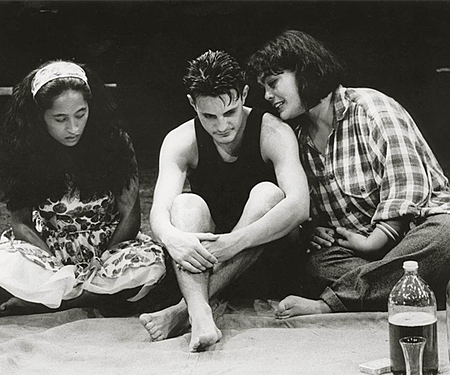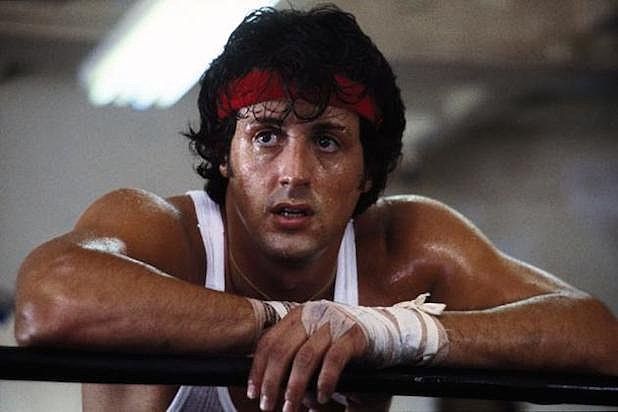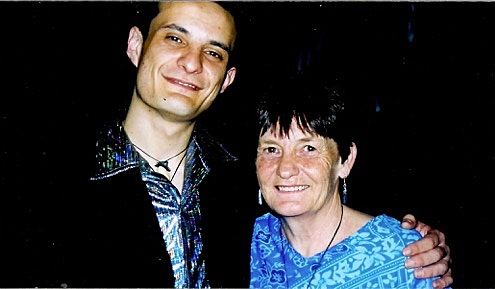Loose Canons: Jason Te Kare
Director and playwright Jason Te Kare shares his inspirations.
Loose Canons is a series in which we invite artists we love to share five things that have informed their work. Meet the rest of our Loose Canons here.
Jason Te Kare is a director, playwright and performer who has worked on stages in England, Canada, Hawai’i and all over Aotearoa. He made his professional debut as an original cast member in the landmark New Zealand play Waiora by Hone Kouka. In 2011 Jason directed I, George Nepia – the first Māori play to win Production of the Year at the Wellington Theatre Awards. His other Wellington Theatre Awards include: Most Promising Male Newcomer, Best New Director, and Director of the Year. He spent ten years producing drama for Radio New Zealand and is currently Associate Artist at Silo Theatre. Jason directs Silo Theatre's Cellfish, written by Miriama McDowell, Rob Mokoraka and himself, which opens this week at Q Theatre.
Waiora
This was my first professional acting gig and the people are like family. Years have passed, but whenever I see any of them, I cherish being in their presence. Three relationships from this time really stand out.
I could not believe Hone Kouka was the playwright when I met him. I was only 18 so I had a limited idea of what a writer was, or could be. Hone has cast me more times than anyone. He went in to bat for me when Toi Whakaari wanted me kicked out, he gave me my first directing opportunity and I love beating him in anything. Nancy Brunning played my older sister in Waiora and has been like one ever since. She growls at me, she bosses me around and she kicks my backside when I need it. I’ve seen her do it to others and I wonder if they realise how lucky they are? Rachel House also played my older sister and really is like my older sister in real life. Rachel was like this towards me before we did Waiora, she was like this even before I knew her name. Over the years I’ve seen her nurture many projects and artists in the industry. Theatre in Auckland has a lot to thank her for and she deserves recognition beyond her official directing and acting credits. I’m glad she’s happy doing film but I miss working with her in theatre. These three people have different approaches to developing young artists and have played large roles in the healthy state of Māori Theatre today. I was so lucky to meet all three artists on my first gig. They are my older siblings and like a younger brother, I want to be just like them when I grow up.
Numbers
Ever since I was a kid, I've seen stories and characters in numbers. I don’t mean like in a gifted math genius way (although I was really good at maths at school), I mean more like, “I’m bored, so let’s make this more interesting.” Maybe I just had an over active imagination, but digits would become characters and equations would become the actions or even storylines.
Data collecting and analysing can be so interesting, and I love looking at stats and listening to podcasts like Freakonomics. When creating Cellfish, I kept going back to the stats for Māori in the justice system and Corrections because they spoke to me. They really aren’t numbers, they are people, and they tell a heartbreaking, horrific story. So hell yes to numbers.
Fatherhood
Fatherhood was a hard thing for me to grapple with because my own father had been absent throughout most of my life. As I’m my children’s step-father, there was also a certain amount of finding our way, listening, learning, making mistakes, admitting to mistakes, adapting, being attentive, being strict, being forgiving, being strong and showing weakness. I know it’s the same for biological parents, but those outside the step-parent and step-child relationship can sometimes assume the relationship is less, or that it’s easier to walk away should your relationship with the biological parent end. From my experience it’s not. I don’t claim to be the best father, just one who tries. In return my children have inspired me to be better than I ever thought I could be.
Sports Films
Sports films are my dirty little secret. I know many are formulaic…okay, most are formulaic…ALRIGHT!! And predictable. But the underdog-overcoming-adversity story is one I’m a sucker for. As a Māori male growing up in a single parent home in a low socio-economic area, I’ve always felt like an underdog. Add to that the fact the house I was living in was a halfway house (run by my mother) and the high school I attended took students who got kicked out of any other school in Auckland, and you can understand my affinity with the underdog. I’m also naturally quite small and at high school I was a late bloomer physically. So that might also explain why I love sports films. Two of my favourites are Rocky (the first one) and Rudy (released in 1993, with Sean Astin). SPOILER ALERT: Instead of the usual trope of the fighter or team winning the final climactic bout or game, both films focus on what the main character considers to be a win: going the distance; making the team; achieving it through perseverance, heart and determination. Talent be damned!
Barbara Te Kare
My mother is a selfless workhorse: she ran a halfway house for runaway kids; she has set up countless community support groups for the Glen Innes community; she’s been a fundraising machine for those groups and local marae. She's helped individuals, families, sports clubs and Kōhanga Reo. She worked with young offenders and recognised that to help these young people, you have to help their families to improve their environment. When her boss at the New Zealand Police changed and limited her work to only focus on the young offenders, she left. She would rather work for free and make a real change than work within a system that is achieving nothing. At the heart of everything she does is her love for helping people. My mother's influence on me shows in my passion for work that deals with social issues – it brings out the fighter in me and acknowledges my mother's side.
Cellfish runs from 13-24 June at Q Theatre Rangatira. Tickets available here.






